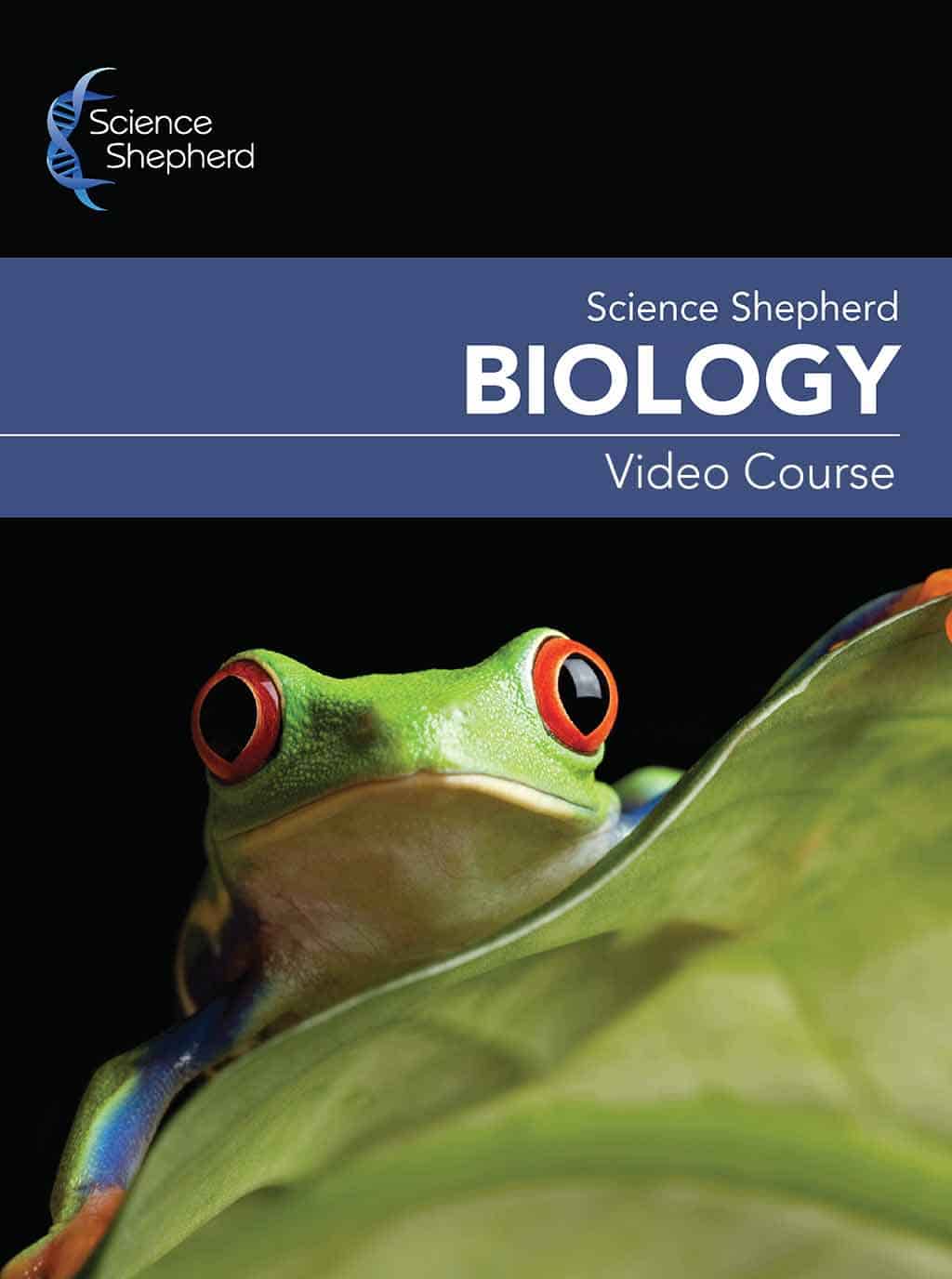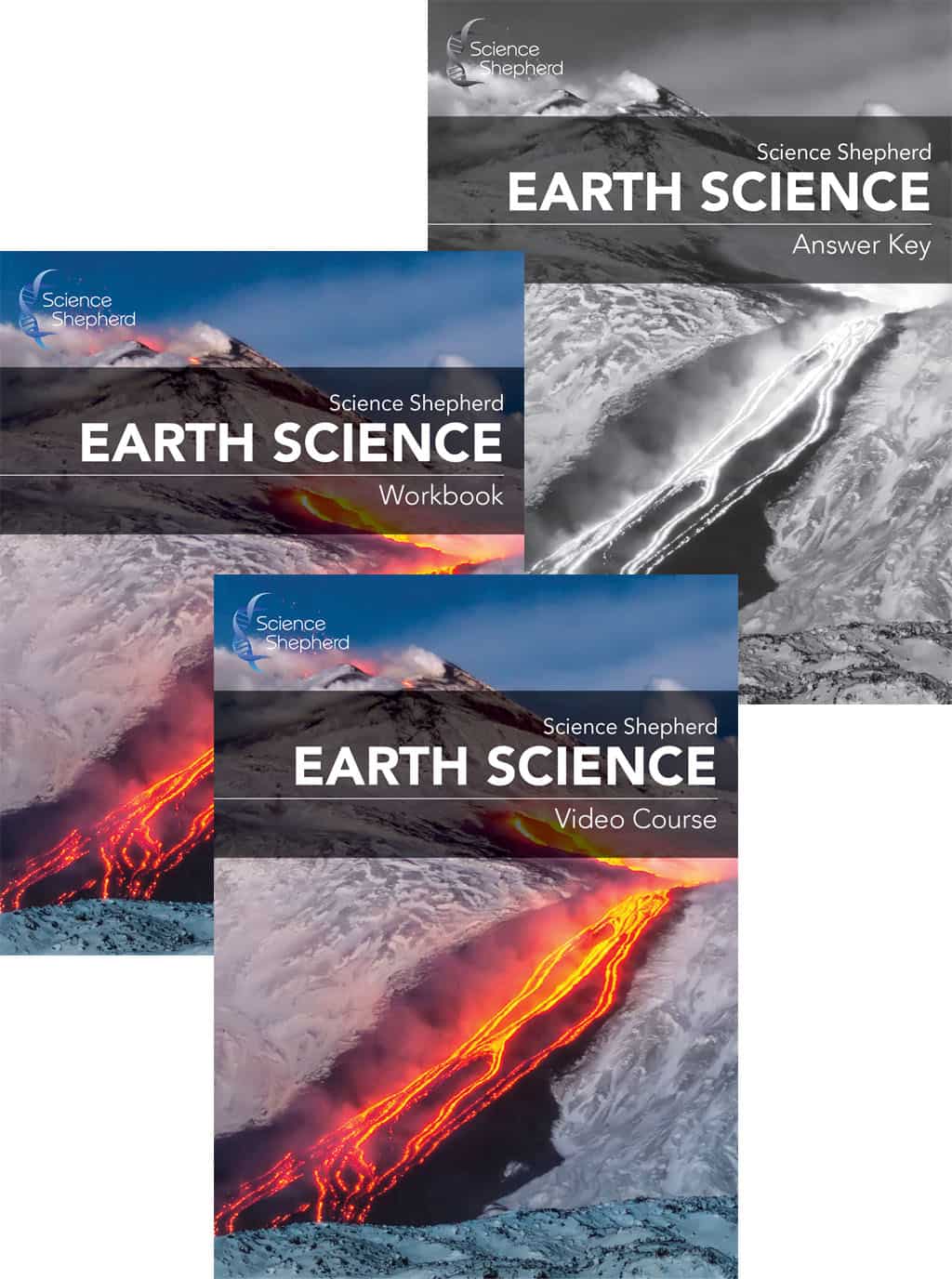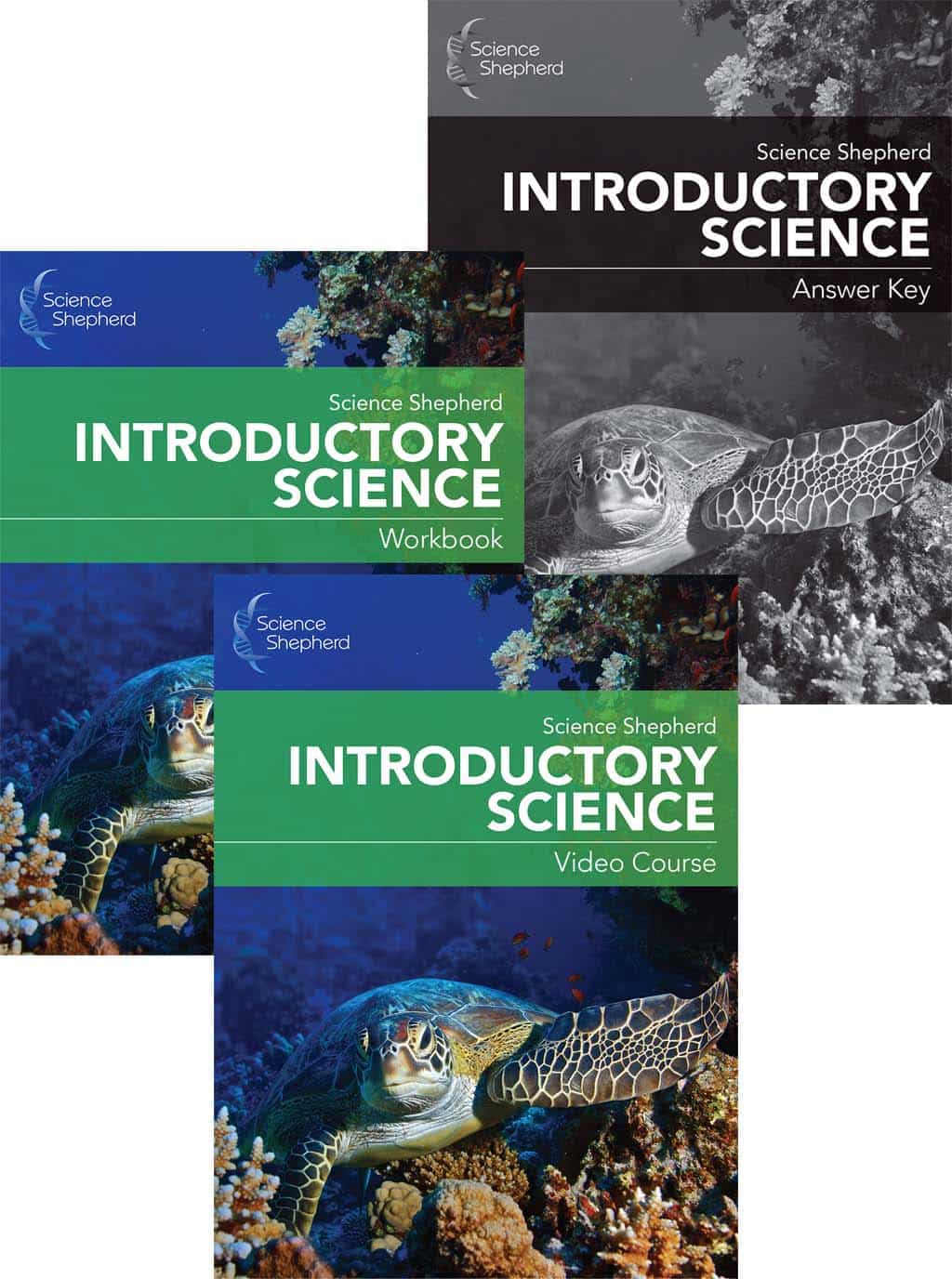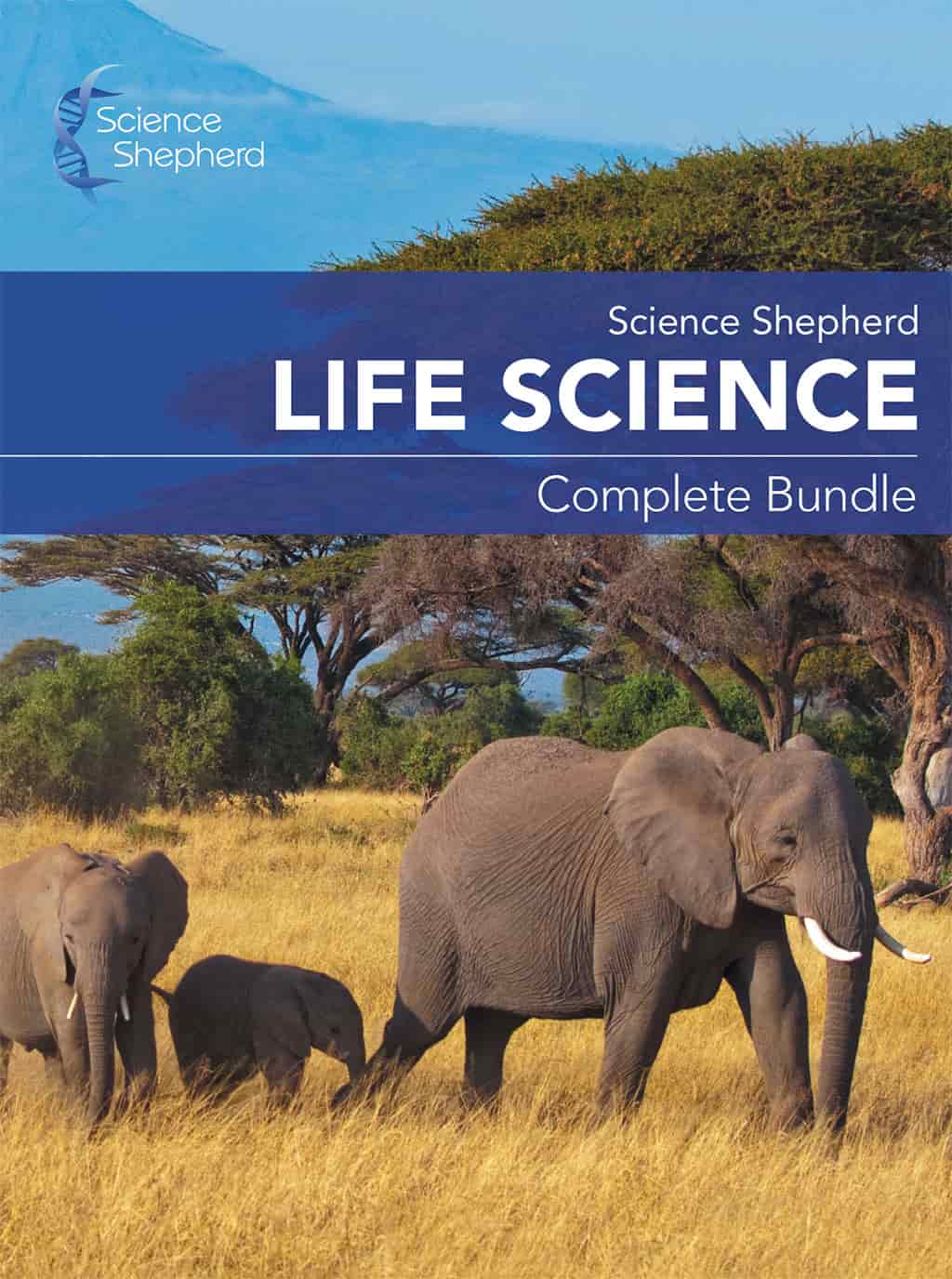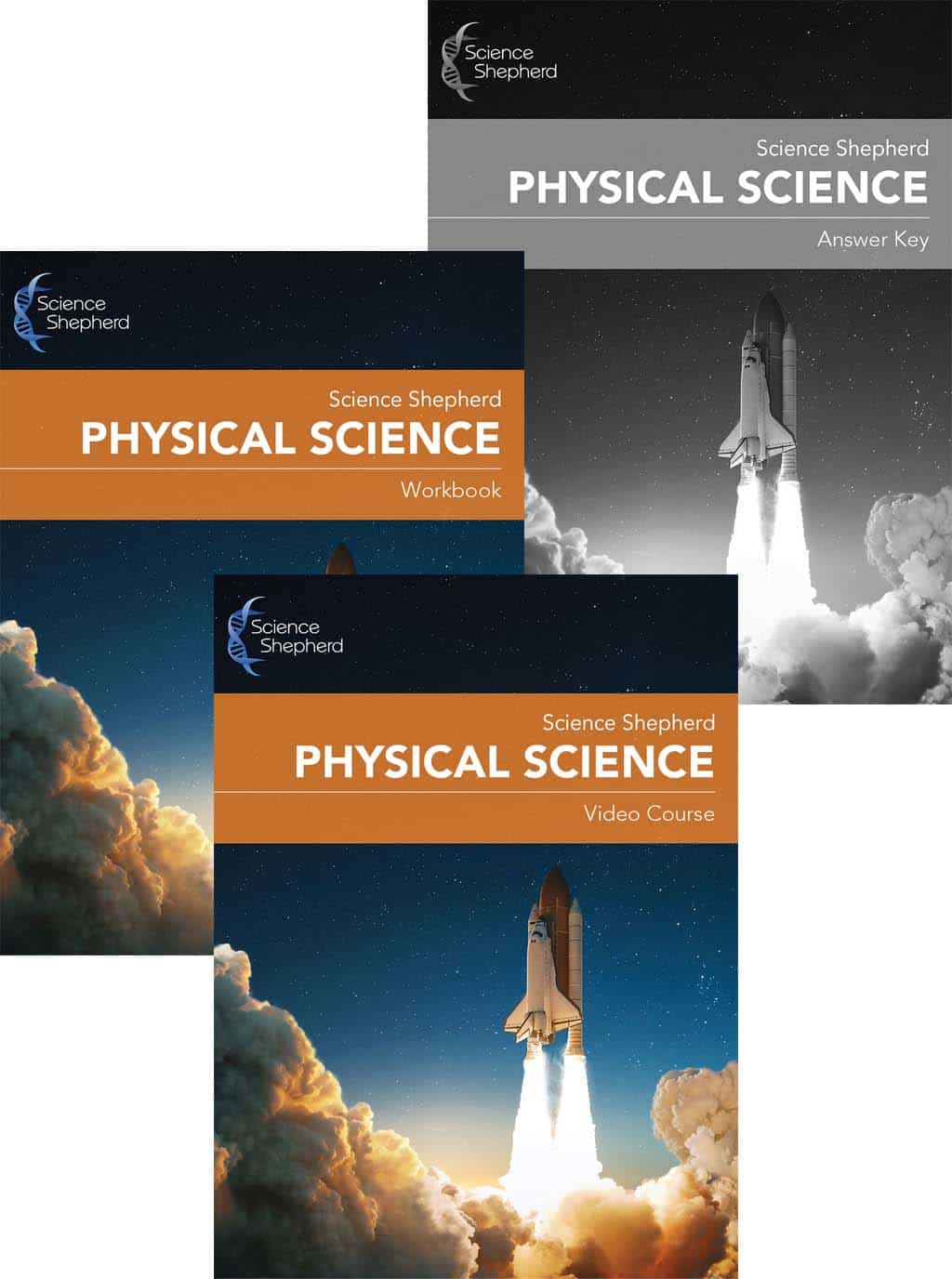Homeschool Help! Science Study Tips
by Bill Hardin June 17, 2024 7 min read

Keys to Help Make Homeschool Science a Success
We get it; science can be the most daunting subject in homeschool, for parents and students alike. But it doesn't have to be! That's why we've put together a multi-part series, "Homeschool Help!", to equip you and your student for successful school years in science. For part 1, we're starting with study tips your student can implement right away, regardless of the homeschool curriculum your family is using.
This is Part 1 of our Homeschool Help! series. Check out Part 2, My Child Hates Science!
Science Study Tips for Students
Whether you’d rather sleep with your science textbook under your pillow because you are hoping it will seep into your brain via osmosis* or because you LOVE it that much, here are 8 great study tips to help you not only survive but also thrive in science and get the most out of it this year . . . and all the years to come.
*Osmosis: a mode of passive transport that cells use involving the movement of a solvent across a semi-permeable membrane from an area of low solute concentration to an area of high solute concentration.
1. Get a notebook or binder
Even a computer file would work! This resource will be where you will keep all of your notes from your science class. Keep your notes, worksheets, answers to review/homework questions, returned quizzes/tests, etc. in this place. Especially if you are taking science with a co-op or online class, you should also have a place in your notebook/binder/digital space where you keep track of when assignments are due.
Pro tip: If you are taking a Science Shepherd course, many of our classes have a student workbook available that could serve as your notebook.
2. Keep this notebook/binder/digital file in one place so that you always know where it is
Life is stressful enough – you don’t have to create more stress for yourself by running around before your next class trying to find your homework! The same can be said for all of your homeschool material; textbooks, workbooks, test books, usernames and passwords for online accounts, etc. Keep these regularly-used resources in the same place, every time.
Pro tip: staying organized like this will help with more than just your science and school work!
3. Look for clues of what is important
Happily, you don’t have to memorize everything in a textbook to do well at science. You just need to look for what is important. How will you know? We’ve made it straightforward. (Note: While the below subpoints are somewhat specific to Science Shepherd textbook-based courses, other science programs will often follow this general format to some extent, so these tips should be helpful to you no matter which curriculum you use!)
a. Chapter Preview. At the beginning of each chapter, we have listed the main topics that will be covered in the chapter. This is where you’ll find a summary of what will be covered and a “heads up” of what to pay special attention to in the following pages. Think of it like the science textbook version of a movie trailer.
b. Bold Terms. In a way, studying science involves learning the language of science, so you will be learning a lot of words. The important ones are written in bold type. Look at the sentences surrounding a bold term to learn its definition or meaning. To help you out, we have not only put these bold terms within the main text of each chapter, but we have also listed them at the end of each chapter with their definitions for you.
c. Illustrations. Diagrams, pictures and other illustrations are often in the text to make a concept visual and to emphasize it because it is important. Use illustrations to help you understand important concepts and picture them in your mind.
d. Key Chapter Points. Near the end of the chapter, you’ll find a section similar to the chapter preview that gives a summary of what you have learned about in this chapter. Take special note of the concepts listed here!
e. Study Questions. At the end of each chapter is a list of review questions. The answers to these questions are within the text of the preceding chapter (and in the parents’ answer key). You can use these questions to test your understanding of the material in the chapter. Don’t forget to use them to review before a test, too!
Pro tip: Write your answers to the chapter study questions down and keep them in your science notebook. That way, when you need to review, you’ll be able to do so quickly.
4. Figure out study methods that work for you
Never had to study much before and so aren’t sure what works? Or you’ve tried what your parent recommends or what your friends do but feel like it doesn’t work for you? Here are a couple of study skills to try.
a. Experiment. After all, this is a science class! Seriously though, maybe your experiment will look like this: Say you make the hypothesis (educated guess) that you will do better if you study your textbook first before watching your video lesson. You try this out for two weeks. For the next two weeks, switch it up: try watching your video lesson and taking notes before going over your textbook. Which routine helped you learn better? Record the results of your experiment and let them guide you about how to study in the future.
Another experiment you could try involves making flashcards of all the bold terms listed at the end of the chapter you are studying. Try going over them yourself. Next time, try having someone quiz you with the flashcards. Which worked better? Again, let the results of your experiment help you study better.
b. Make it personal. Are you social? Study with a friend. Use the lists of bold terms to quiz each other or write them on cards and use them for a game of Pictionary. Do you dislike writing but like listening? Instead of making flashcards, record yourself reading the bold terms and definitions from the chapter and the chapter review questions along with your answers. Then when you need to review that chapter, just pop in your earbuds and voila!
Pro tip: You may need to do some writing work to make sure you know the spelling of the science terms you are learning.
You could also film yourself going through your flashcards – showing them to the camera and reading them out loud – so that you can watch yourself later for review. Do you like to be outside? Study outdoors if you can pay attention, or at least by a window. Do you like to draw? Make pictures to help you remember the key terms. Or, as we recommended earlier, use the bold terms as your words for a game of Pictionary. Do you like to act, teach or be on camera? Film yourself sharing about your science findings like a news report, teaching in your own words the material you are studying or do a presentation for your family, friends or even your dog. Who knows? Maybe you will fill Dr. Hardin’s shoes someday!
5. Focus on the principles
Practice “principles over rote memorization”. In other words, instead of just memorizing “Photosynthesis: the process by which the energy of the sun is captured and used to make sugar molecules,” try to really understand the principles – that is, how photosynthesis works. This is where looking at diagrams could be especially helpful! By understanding the principle of a topic, you'll naturally learn definitions along the way.
6. Review often
Spend 15 minutes a day, 5 days a week, going through your flashcards (or listening to your audio cards) and/or reviewing your answers to chapter review questions. Don’t have time? Look for time while you are waiting at the dentist, standing in line at the grocery store, waiting for your mom, riding along to your brother’s basketball game, brushing your teeth . . . you get the idea. When a quiz or test comes around and you don’t have to stress, you’ll be glad you put in the regular little effort.
Another benefit of frequent review is that the information will likely stick with you longer because you are building those neurological pathways in your mind, so you’ll actually have a harvest of information to reap down the road from all your hard work. This can be much more rewarding than realizing you spent hours cramming to do well on a test but can’t remember anything weeks, let alone years, later.
Pro tip: Make a chart for yourself where you mark off when you have completed your 15 minutes of review. Whenever you complete 7 days, give yourself a reward!
7. Ask for help
Whether or not you are feeling confident, check with your parent/teacher and see if they have any advice about how you could be studying better. You can also check out our upcoming post Homeschool Help! High School Science that includes more tips for being a skilled student.
8. Pray
Honestly, this should probably be our first piece of advice. Who better to ask for help in studying all the amazing creatures, plants, rocks, stars and more than the Creator Who so artistically and thoughtfully made each one? “Commit your work to the LORD, and your plans will be established,” Proverbs 16:3 says. We want you to be successful in the very best sense with your science studies, and we recognize that it takes the Lord to make that happen. He made you, He knows how you are wired, He knows what lies around the next bend for you, and He knows what will help you most. If you need help, why not do as James 1:5 says and ask Him for wisdom?
If any of you lacks wisdom, let him ask God, who gives generously to all without reproach, and it will be given him. James 1:5
There you go! May these 8 tips help you along your way in science as you learn more about the awesome creation the Lord has given us to study. We’d love to hear how it goes! We’re here to cheer for you, so get a parent to drop us an email whether you need encouragement, advice or a chance to tell someone how great you are at science.
All the best!
The Science Shepherd Team
“Scripture quotations are from The ESV® Bible (The Holy Bible, English Standard Version®), © 2001 by Crossway, a publishing ministry of Good News Publishers. Used by permission. All rights reserved.”
Sign-Up Today!
Subscribe for the latest news and receive 10% off and a FREE resource!
Recent Articles
10% Off Your Next Order
Subscribe to our newsletter and we'll send you a code for 10% off an order
plus a free download of 5 Scientific Ways Your Kids Can Defend Their Faith.



